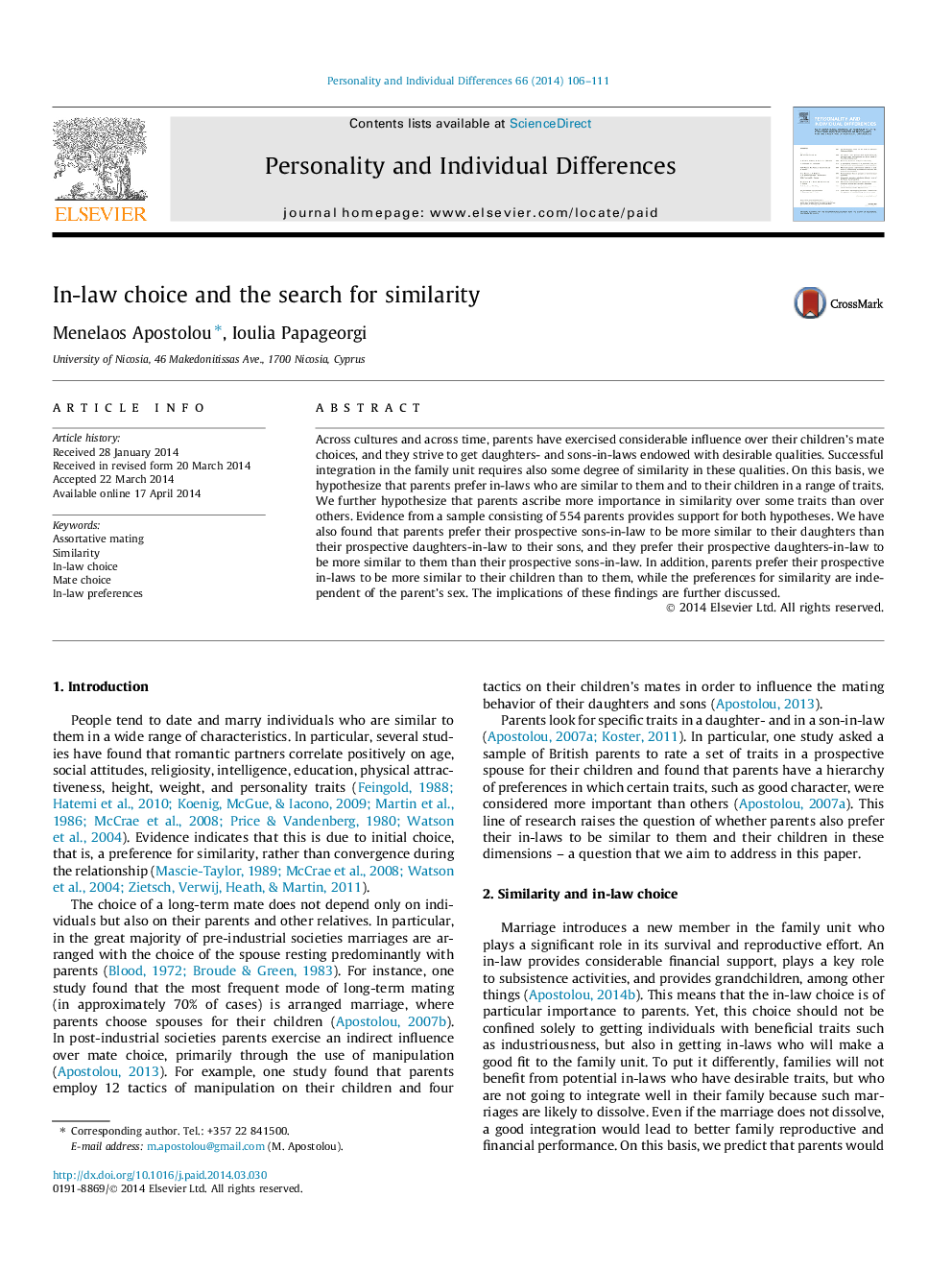| Article ID | Journal | Published Year | Pages | File Type |
|---|---|---|---|---|
| 890482 | Personality and Individual Differences | 2014 | 6 Pages |
•Parents prefer as in-laws individuals who are similar to them.•Parents prefer as in-laws individuals who are similar to their children.•Parents ascribe more importance in similarity over some traits than over others.
Across cultures and across time, parents have exercised considerable influence over their children’s mate choices, and they strive to get daughters- and sons-in-laws endowed with desirable qualities. Successful integration in the family unit requires also some degree of similarity in these qualities. On this basis, we hypothesize that parents prefer in-laws who are similar to them and to their children in a range of traits. We further hypothesize that parents ascribe more importance in similarity over some traits than over others. Evidence from a sample consisting of 554 parents provides support for both hypotheses. We have also found that parents prefer their prospective sons-in-law to be more similar to their daughters than their prospective daughters-in-law to their sons, and they prefer their prospective daughters-in-law to be more similar to them than their prospective sons-in-law. In addition, parents prefer their prospective in-laws to be more similar to their children than to them, while the preferences for similarity are independent of the parent’s sex. The implications of these findings are further discussed.
